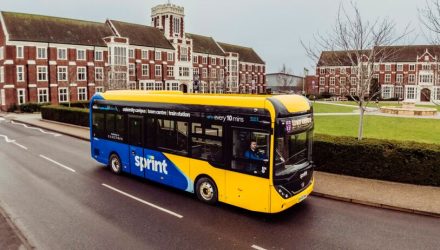German automotive giant BMW is set to unveil a substantial investment plan worth hundreds of millions of pounds aimed at transforming its Mini factory located near Oxford into a cutting-edge facility for producing the next generation of electric vehicles (EVs). The Cowley plant is slated to commence production of two brand-new electric Mini models by the year 2026.
This strategic move not only secures the future of the Cowley facility but also that of another BMW factory in Swindon. BMW is anticipated to announce an allocation of £600 million towards the modernisation of the Cowley plant, encompassing upgrades to production lines, an extension of the body shop, and the establishment of a dedicated area for battery installation. Additionally, the plan includes the construction of enhanced logistics infrastructure at both the Cowley and Swindon sites, with the latter specialising in the production of body panels for new vehicles.
These measures will facilitate the co-existence of two next-generation electric Mini models, the Mini Cooper and the larger Mini Aceman, alongside traditional internal combustion engine cars at the Cowley factory. Meanwhile, a third electric model, the Countryman, will continue to be manufactured in Germany. The United Kingdom’s investment in this endeavour will be bolstered by funding from the government’s Automotive Transformation Fund, estimated at £75 million.
With the Mini brand’s complete transition to electric power expected by 2030, BMW’s decision carries immense significance for the sustained operation of both UK factories. It is worth noting that the initial electric Mini was introduced at the Cowley plant back in 2019. However, a recent shift in strategy saw BMW relocating the production of most of its electric vehicles to China through a partnership with Great Wall Motor. This strategic adjustment was motivated by the belief that manufacturing both conventional and electric vehicles within the same factory was inefficient. However, this plan has now been revised, and production of the new electric models is slated to commence at Great Wall’s Zhangjiagang factory next year, followed by Cowley in 2026.
The UK Prime Minister, Rishi Sunak, hailed BMW’s investment as a testament to the UK’s status as the ideal destination for building the cars of the future while Kemi Badenoch, the Business and Trade Secretary, expressed excitement over the news, emphasising the importance of continual investment in the automotive sector to maintain its vibrancy.
This development is part of a series of government-supported initiatives designed to foster the growth of electric vehicle technology in the UK. These initiatives are being rolled out in preparation for the ban on the sale of new petrol and diesel-powered vehicles scheduled for 2035. Other car manufacturers, including Jaguar Land Rover, Stellantis, Nissan, and Ford, are also making significant investments in electric vehicle production in the country.
However, it’s essential to acknowledge the challenges faced by the automotive industry, such as the closure of Ford’s engine plant in Bridgend in 2020 and Honda’s Swindon factory in 2021. Additionally, Britishvolt, a company planning to construct a battery factory near Blyth, went into administration in January, raising uncertainty about the future of the site.
David Bailey, a professor of business economics at Birmingham Business School, views BMW’s announcement as highly positive for the UK’s EV industry. He underscores the urgency of the UK’s transition to EVs, particularly with the 2035 deadline for banning internal combustion engine vehicles fast approaching. Although the UK has lagged behind in areas like battery production and EV manufacturing, recent developments indicate a shift in the right direction.
Matthias Schmidt, an analyst based in Germany, suggests that car manufacturers are capitalising on the perceived vulnerability of the UK government in its quest to attract new investments in the post-Brexit era. He believes BMW’s move is a strategic effort to secure fiscal incentives from the UK government, despite potentially higher production costs in the UK compared to other locations. Schmidt also highlights the value of maintaining the Mini brand’s British identity, even if it means sacrificing some profit margins.
One critical unknown factor is the source of the batteries for the vehicles produced at the Cowley factory. This issue could become pivotal as new regulations set to take effect in the near future will impose steep tariffs on cars with batteries produced outside of the UK or the EU when exported across the Channel. BMW, along with other businesses, is actively lobbying both in the EU and the UK to influence these regulations, seeking possible amendments or delays.
Dr Graham Hoare OBE, CEO of the Manufacturing Technology Centre (MTC): “The recent news of BMW’s investment of £600 million in the UK’s electrification is a significant milestone for our nation’s economy. BMW is a crucial player in the UK’s automotive landscape, and this announcement is a strong vote of confidence in the UK’s electric vehicle leadership, securing thousands of high-skilled jobs across the country. It’s a powerful statement that the UK is at the forefront of automotive transformation, and at the MTC, we’re committed to ensuring that the entire supply chain maximizes these opportunities.”






